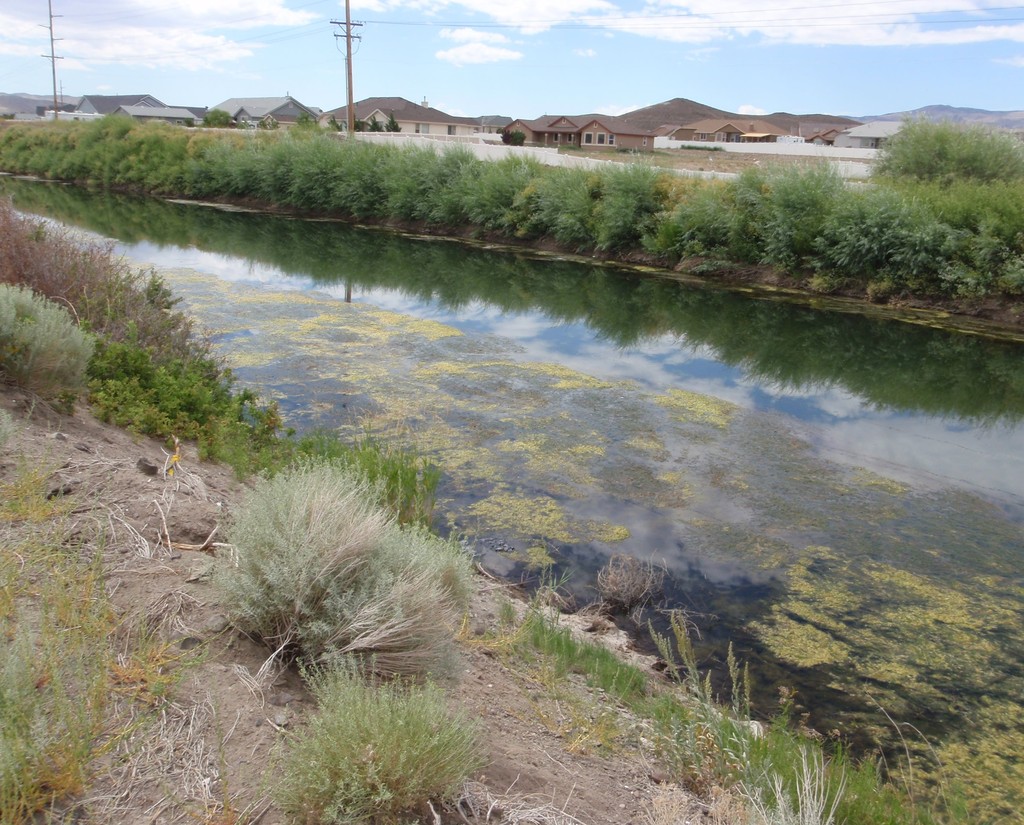
The Bureau of Reclamation entered crowdsourcing prize challenges with HeroX in an effort to encourage open innovation that delivers long-term solutions to promote water conservation and efficient water delivery in the Western U.S.
A prize competition called Water America’s Crops brought crowdsourcing to the table to reduce seepage in the more than 8,000 miles of canals for which the Bureau of Reclamation is responsible. The prize competition began in July 2021 and is expected to produce a winning strategy. Successful crowdsourcing will provide finalists with at least $50,000, and the winner taking home $110,000.
The recently launched Veg Out crowdsourcing initiative offers upwards of $345,000 to promote open innovation to manage aquatic vegetation in American canals. Aquatic vegetation can significantly obstruct canal flows, resulting in increased water elevations, seepage, and evaporative losses – as well as contributing to the potential risk for canal failure. Heavy vegetative growth can also cause problems for maintenance, and inspection of canals. Managing plant life in canals is costly and can result in water degradation and excessive losses to water deliveries.
Creative problem-solving can help support Reclamation’s water conversation efforts by addressing water delivery challenges.
Western States Benefit from Water Conservation
During the summer of 2022, drought-stricken Western states faced dire water shortages. The hot arid climate over two decades exacerbated conditions. The issue may not have gained the splashy mainstream media headlines garnered by supply chain bottlenecks, rising gasoline prices, and inflation in 2022. However, PBS Hour conducted diligent reporting on the issue.
“The U.S. Bureau of Reclamation in June told the states — Arizona, California, Colorado, Nevada, New Mexico, Utah and Wyoming — to determine how to use at least 15 percent less water next year, or have restrictions imposed on them,” PBS reported.
On the surface, the shortages appear to be a regional problem. But PBS points out that more water has been diverted from resources such as the Colorado River than it accumulated over the last 20 years. Its banks appear low, caked, and connecting reservoirs are depleted. According to PBS, the Colorado River provides primary water for 40 million people in the Southwest and nourishes 90 percent of America’s winter vegetables. The Bureau of Reclamation publishes data that concurs with the need to maximize water conservation in feeder canals.
- 10 million acres of farmland irrigated by Reclamation water.
- 20 percent of western farmers served by Reclamation water.
- 140,000 farmers receive water from Reclamation.
- 25 percent of the nation’s fruit and nut crops produced using Reclamation water.
- 60 percent of the nation’s vegetables produced using Reclamation water.
Communities across the Western U.S. already face difficult choices in terms of meeting a 15 percent water usage reduction. Should this shortfall persist, or be heightened by another sustained drought, the challenges will be amplified. That’s why the open innovation encouraged by Veg Out, Water America’s Crops, and accompanying prize challenges is vital.
Creative Problem-Solving Works
California struggles to meet the varied needs of its residents, from residential use to agricultural use. In urban landscapes, 76 out of 414 water management organizations are bracing for a fourth consecutive drought year, according to a 2022 supply and demand report published by the California Natural Resources Agency. With the Golden State nearing a tipping point, innovation culture delivered a potentially game-changing solution.
Water evaporation from canals and aqueducts reduces available water supply, which makes drought conditions worse. Problem solvers in the citizen science arena developed what seemed like an almost common sense solution. Simply covering the waterways would prevent evaporation from intense sunlight. Researchers confirmed that installing a solar panel system over canals and aqueducts could reduce losses by upwards of 90 percent and produce sustainable energy. That’s precisely the type of benefits sought through the crowdsourcing efforts of HeroX when it helped create prize challenges, encourage open innovation, and develop viable water conservation solutions.
Get Involved In Veg Out Challenge & Protect America’s Agricultural Water Resources
For the Veg Out Challenge to improve water delivery by reducing aquatic vegetation, the country needs innovative and creative thinkers. These prize challenges are financially rewarding for people who can identify, develop, and test novel, sustainable, scalable solutions that can be used across various canal types. A total prize purse of $345,000 will be distributed across the three phases of concept, prototyping, and demonstration. Visit the Veg Out Challenge today and get involved.








